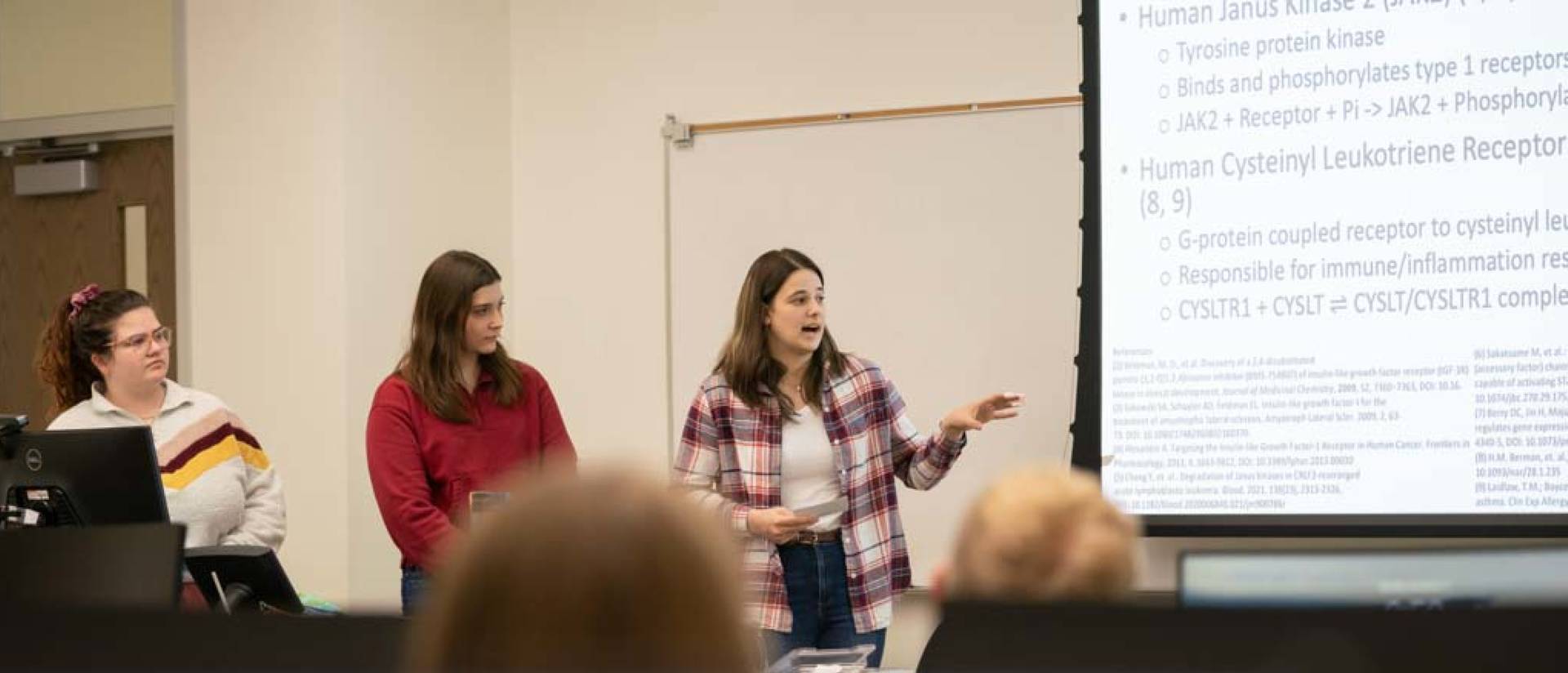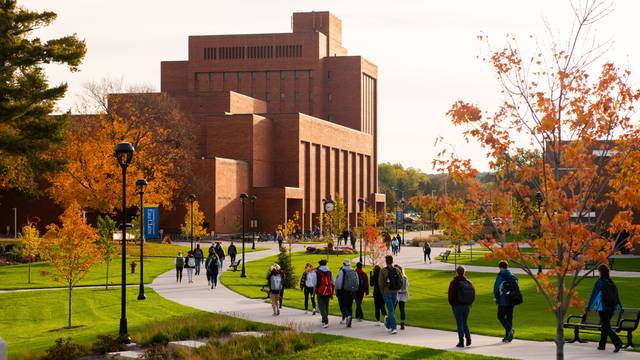
Computing in the Classroom
Not just for research!
Gaining experience with the supercomputing cluster can actually be a part of your coursework! The cluster has been used for teaching computer science, data science, geography, physical chemistry and biophysical chemistry, materials science, and mathematics. Our cluster is bringing the high-impact experience of collaborative research to many students through discovery-guided group projects.
Goals of cluster-based group projects
- To to explore theoretical concepts through computational experiments
- To provide training and disseminate scientific results through oral and visual presentations
- To analyze and produce data shareable for the scientific community through published research
Research topics
Physical chemistry
- Determination of the van der Waals constants of common gas molecules. Developing potential energy surfaces and derive van der Waal's coefficients using Lennard-Jones parameters obtained from the results.
- Effect of substitution on the redox and protonation equilibria of quinones. Calculation of the free energy changes for the electron and proton addition reactions of various substitutions.
- Impact of quinone substitution on the hydride transfer energetics. Calculation of the free energy changes for the hydride-transfer reactions between lumiflavin and various substituted quinones.
Biophysical chemistry
- Exploring the dynamics of G-protein coupled receptors (GPCRs).
- Comparisons of the intrinsic dynamics of enzymes involved in metabolic pathways and develop a dynamic tool for the functional identification of proteins.
- Comparison of the intrinsic dynamics of the Cytochrome P450 superfamily to understand if the difference in atomic fluctuations is related to substrate specificity.
- Classification of aminoacyl-tRNA synthetases (AARSs) based on their intrinsic dynamics.
Classes Using HPC
The following courses have utilized cluster resources either through exams, presentations, projects, or direct integration into the course's format:
- BIOL 343 - Applied Bioinformatics I
- CHEM 106 - General Chemistry 1 Laboratory
- CHEM 109 - General Chemistry 2 w/ Lab
- CHEM 115 - Chemical Principles
- CHEM 406 - Biophysical Chemistry
- CHEM 434 - Physical Chemistry II
- CHEM 491 - Learning Chemistry with Blugold Supercomputers (Special Topic)
- CS 146 - Big Picture in CS
- CS 388 - UNIX Systems Programming
- CS 396 - Junior Seminar
- CS 425 - Machine Learning
- CS 426 - Deep Learning
- CS 462 - Computer Networks
- CS 491 - Deep Learning (Special Topic)
- DS 150 - Computing in Python: Fundamentals and Procedural Programming
- DS 250 - Data Structures and Algorithms in Bioinformatics
- GEOG 135 - Introduction to Geospatial Analysis
- GEOG 335 - Geographic Information Systems I
- GEOG 338 - Remote Sensing of the Environment
- GEOG 390 - Geospatial Applications of UAS
- MATH 312 - Differential Equations and Linear Algebra
- MATH 341 - Classical Number Theory
- MSE 451 - Computational Materials Science

Contact the HPC Team
Interested in learning more about how to integrate supercomputing in the classroom, our would like our team to introduce computational science and HPC to your students? Let us know how we can support your class by contacting us today.
Contact Us